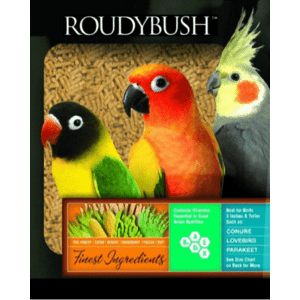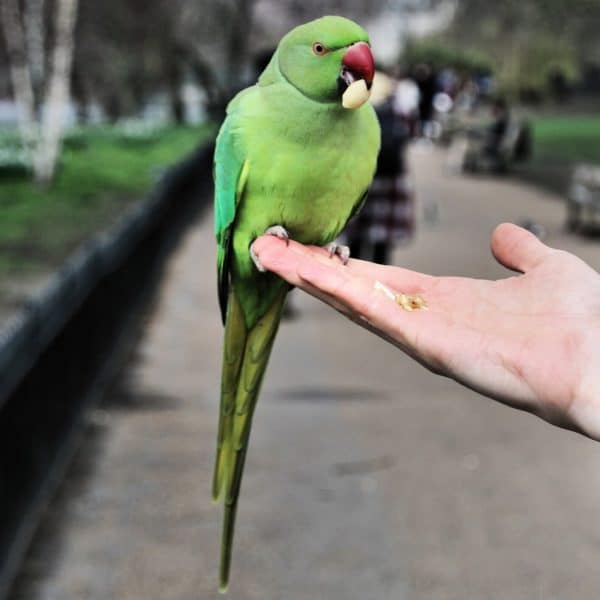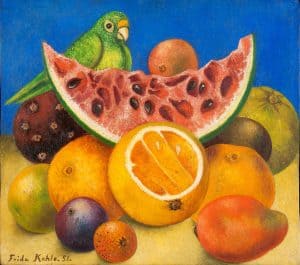Last Updated on by Mitch Rezman
I have attached some charts for you to look at. You might want to study acid, alkaline, and the combination of neutral acid alkaline foods better as you make recommendations for feeding birds. If a human (and this should apply to birds) eats a mixture of foods that are acid and alkaline, and if more alkaline foods are introduced into the mixture than acid, the combination of the foods eaten tend toward neutral and this is healthy for the body.
It may surprise you to know that berries are acid so are apples and pears. However, good nutrition is based upon a combination of a great variety of foods….both acid and alkaline foods are important to eat as they all are loaded with antioxidants and other properties which enhance immunity and cellular health on all levels.
There are citrus fruits that when eaten become alkaline such as tomatoes and grapefruit. Lemons and limes are alkaline. Common in bird foods is millet which is an acidic seed, yet sunflower is an alkaline seed. Sprouts, most beans, flax (, I feed flax to my small birds), sesame and pumpkin seeds are alkaline. Most all nuts are acid except for almonds and they are alkaline. I admit there is a little inconsistency in these charts, but I hope these will serve to still give you a more rounded perspective.
Logically like humans, birds should never eat meat, cheese, or dairy products. These are not only highly acetic but they clog the arteries. They have very negative effects from not only a high fat content but these are laden with hormones and pesticides which is not healthy for humans and far less health for birds.
I enjoy you weekly newsletter… Thank you for it!
Sherrie A
Hi Sherry
Thank you for the excellent and thoughtful response to this week’s newsletter.
Let me start with your statement “If a human (and this should apply to birds) eats a mixture of…………………”
A reference to your chart: Acid Alkaline Food Chart with 12 Perfect Foods were at the bottom it states:
Try and limit the amount of some somewhat acidic fruits like cranberries, prunes, and blackberries. An important tip is to always eat fruit alone. It breaks down and digests quickly so when eaten in combination with foods that do not it can begin to ferment while it sits in the stomach.
Aside from the fact that it’s a time-tested truism known by avian veterinarians – overly feeding citrus fruits (including oranges) to your birds can lead to “Iron Overload Disease.” There are three distinct differences between bird and human digestive systems. This can actually all be tied back to a birds ability to fly, allow me to explain.
First the differences, birds have no teeth so they are unable to masticate food. When you and I chew food we coat the food with saliva and digestions begins in our mouth. Birds have no saliva. Birds also have a crop & a gizzard which humans do not. Where this comes into play is say a bird in the wild spots some nummy seed growing at the top of grass in an open area. Not wanting to become a Hawks next meal the bird will scoop up the seeds as rapidly as possible extending its neck to swallow and the seeds are then stored in the crop while the bird flies to a safe place. Thus citrus in a bird system does not break down immediately it just goes in the holding until it passes to the gizzard were slowly ground up mechanically unlike a human were we use all sorts of nasty acids and Juices to break down the food in our stomachs.
Birds overall metabolism are like Masarati sports car compared to humans which are much more like Ford trucks. A bird’s standing heart rate is somewhere around 200 bpm. When it jumps off a branch to fly it ramps up to 4 or 500 beats a minute (hummingbirds have a 1200 bpm heart rate in flight) in general a birds digestive system typically already has a low pH thus introducing citrus throws off the balance because it’s not being digested quickly and is just acid within their digestive system without possibly being broken down for hours. Eclectus parrots have an extraordinary long digestive system. So long in fact that we advise not to give them any additional vitamins because they can get vitamin toxicity as the vitamins sit in their in their intestines too long.
I hope that helps clairify
Mitch Rezman
General Manager
Windy City Parrot, Inc.
Author Profile
Latest entries
 The Traveling BirdJune 26, 2025Can You Name 5 Parrot Species That Are Living Wild in the USA?
The Traveling BirdJune 26, 2025Can You Name 5 Parrot Species That Are Living Wild in the USA? Bird BehaviorJune 26, 2025How is it Parrots Are Problem Solvers Social Animals and Even Use Tools?
Bird BehaviorJune 26, 2025How is it Parrots Are Problem Solvers Social Animals and Even Use Tools?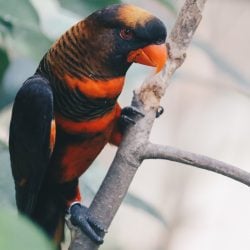 Bird & Parrot AnatomyJune 25, 2025How a Tiny Chemical Modification Makes Parrots Nature’s Living Paintings
Bird & Parrot AnatomyJune 25, 2025How a Tiny Chemical Modification Makes Parrots Nature’s Living Paintings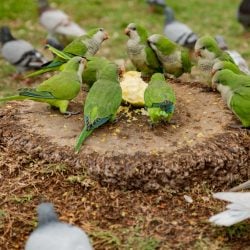 PigeonsJune 20, 2025How Do Parrots Thrive in Cities Outside Their Native Habitats?
PigeonsJune 20, 2025How Do Parrots Thrive in Cities Outside Their Native Habitats?

